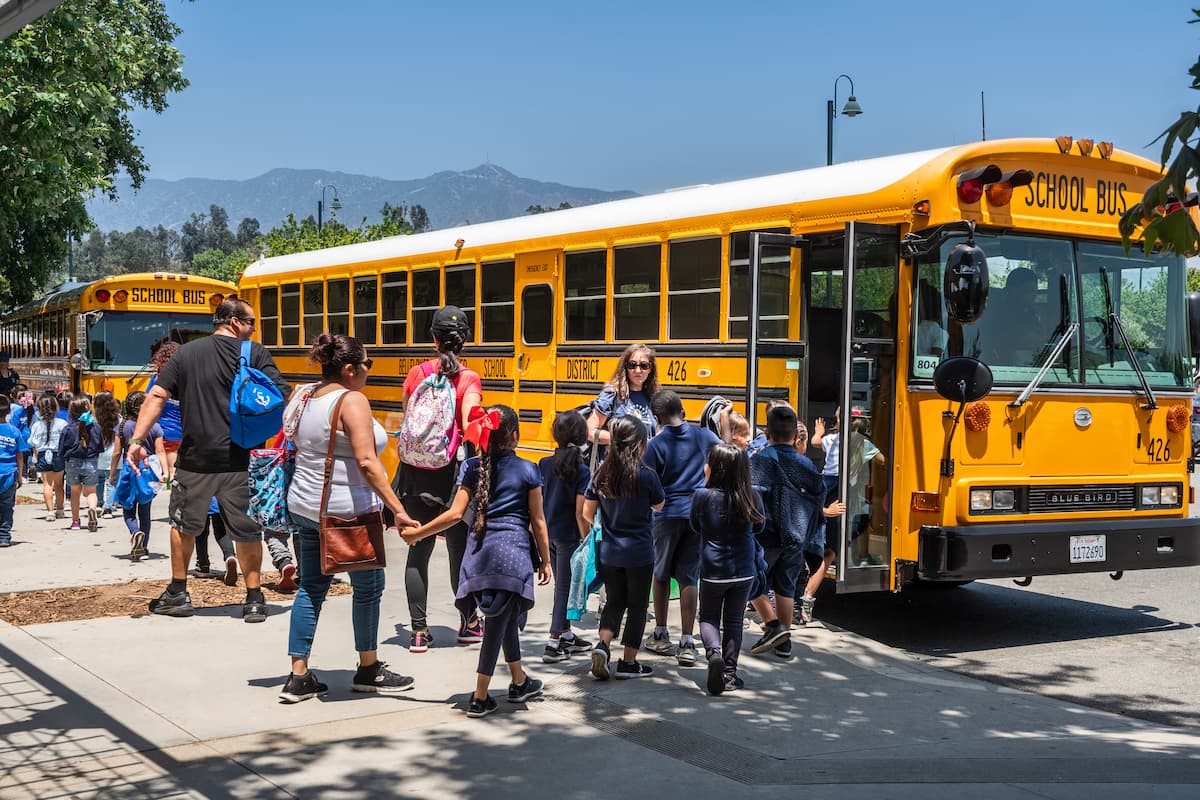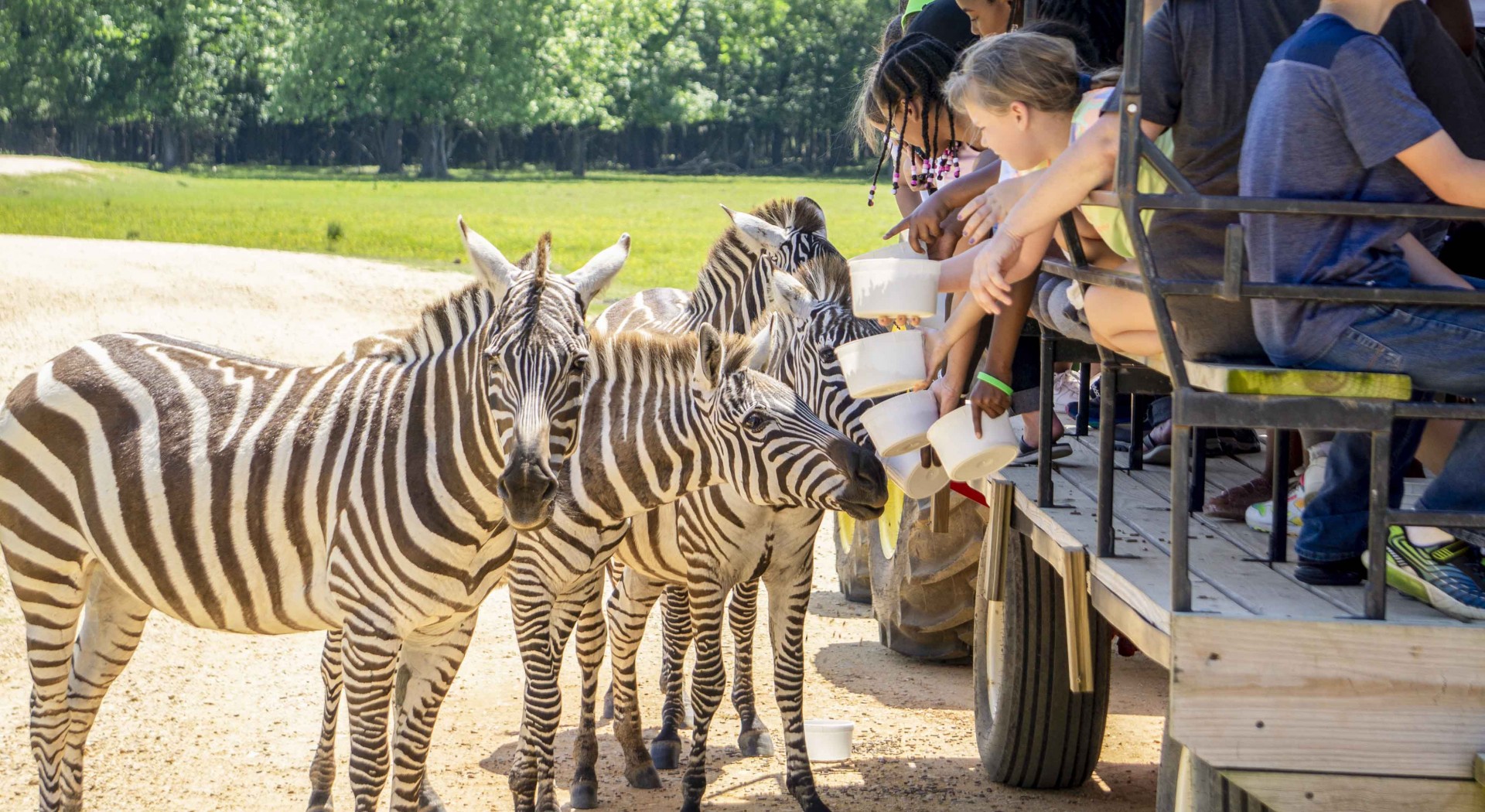A field trip is an educational excursion outside the classroom. It enriches learning by providing students with hands-on experiences.
Field trips offer students a valuable opportunity to explore new environments, engage with experts, and apply their classroom knowledge in real-world situations. These outings can greatly enhance the educational journey, making abstract concepts tangible and fostering a love for learning.
They also encourage curiosity, collaboration, and critical thinking. Whether visiting a museum, historical site, or science center, field trips are essential for a well-rounded education, providing memories and skills that students carry beyond their school years. By stepping out of the traditional learning space, students gain a deeper understanding of their subjects and the world around them.
Introduction To Field Trip Packing
Packing for a field trip can be fun and exciting. It’s like a mini adventure waiting to happen. Knowing what to pack makes the trip enjoyable and stress-free. Your bag is your buddy, carrying essentials to keep you comfortable and safe. So, let’s dive into the art of packing smartly for your next field trip!
Importance Of Efficient Packing
Packing efficiently is key to any successful trip. It means having everything you need without the burden of a heavy bag. A light backpack lets you move freely and enjoy the trip. It also ensures your items are well-organized and easy to find.
Goals For A Successful Field Trip
- Stay comfortable: Pack clothes for the weather.
- Stay hydrated: Bring a water bottle.
- Stay energized: Pack healthy snacks.
- Stay safe: Bring a small first aid kit.
- Learn and have fun: Don’t forget a notebook and pen!

Credit: lazoo.org
Weather Considerations
When planning a field trip, weather plays a crucial role. Proper preparation for weather conditions ensures a safe and enjoyable experience. This section guides you through important weather considerations.
Checking The Forecast In Advance
Always check the weather forecast before your trip. This can help you plan activities and pack appropriately. Use reliable weather services to get the most accurate predictions.
- Look for temperature highs and lows.
- Be aware of rain or snow chances.
- Check wind conditions and humidity levels.
Adaptable Clothing Choices
Choosing the right clothing is key to comfort. Layered outfits allow flexibility for changing weather.
| Layer | Description | Example |
|---|---|---|
| Base Layer | Moisture-wicking to keep skin dry | Synthetic t-shirt |
| Insulating Layer | Traps heat | Fleece jacket |
| Outer Layer | Shields from wind and rain | Waterproof jacket |
Remember to pack extra socks and comfortable shoes. A hat and gloves might be necessary for cold days.
Essential Documents And Ids
Before setting off on a field trip, packing the right documents and IDs is crucial. These items act as your lifeline, providing identification, access, and peace of mind. Understand what to carry and how to keep these essentials secure and reachable throughout your journey.
List Of Necessary Paperwork
Embarking on a field trip requires careful planning. Begin with a checklist of vital documents:
- Personal Identification: A driver’s license or passport for adults, and school IDs for students.
- Emergency Contact Information: A list of numbers for immediate assistance.
- Medical Records: Important health information and allergy alerts.
- Travel Tickets: Proof of booking for transport and events.
- Permission Slips: Signed forms if the trip involves students.
- Insurance Documents: Coverage proof for peace of mind.
Keeping Documents Safe And Accessible
Once you have your documents together, ensure their safety and ease of access:
- Use a waterproof document holder to protect against elements.
- Store copies in a secure digital format such as a cloud service.
- Keep originals and copies separate to avoid losing both.
- Share your itinerary and document locations with a trusted companion.
- Check access to digital copies before departure to confirm availability.
Food And Hydration
Proper food and hydration are key to a successful field trip. They fuel our bodies, keeping us energized and focused. Let’s explore what snacks work best and why staying hydrated is crucial.
Snacks for EnergySnacks For Energy
Energy-boosting snacks are a must-have on any field trip. They provide the stamina needed for a day full of activities. Here are some top snack ideas.
- Trail mix: A mix of nuts, seeds, and dried fruits.
- Granola bars: Packed with oats and honey.
- Apples: A juicy fruit that’s easy to carry.
- Peanut butter sandwiches: A source of protein and healthy fats.
These snacks are not only tasty but also provide long-lasting energy. They are easy to pack and eat on the go.
Staying Hydrated Throughout the DayStaying Hydrated Throughout The Day
Hydration helps your brain work better and keeps your body cool. Always bring a water bottle on field trips. Here’s how to make sure you drink enough water.
- Start with a full bottle of water.
- Sip water, not just when you’re thirsty.
- Refill your bottle at every chance.
Water is the best option. Sugary drinks can lead to a quick energy crash. Keep sipping water to stay alert and happy.
First Aid And Safety
Keeping safe on field trips means being ready for any situation. A First Aid kit and emergency plans are must-haves. They ensure quick help when someone needs it. Let’s explore how to prepare for health and safety on your next outdoor adventure.
Basic First Aid Kit
A well-stocked First Aid kit is a trip essential. It can handle most minor injuries. Pack these items:
- Band-aids in various sizes for cuts and scrapes
- Antiseptic wipes to clean wounds
- Antibiotic ointment to prevent infection
- Sterile gauze for larger injuries
- Adhesive tape to secure gauze
- Scissors and tweezers for cutting or removing debris
- Disposable gloves to protect both the helper and the injured
- Pain relievers like ibuprofen or acetaminophen
- Emergency blanket for warmth or shock
- First Aid manual for reference
Emergency Contacts And Procedures
Knowing who to call and what to do is crucial. Always have a list of emergency contacts. Include local authorities and parent contacts. Learn the procedures:
| Emergency Type | Contact Person | Action to Take |
|---|---|---|
| Injury | Local Medical Services | Call, explain the situation, follow instructions |
| Lost Child | Trip Leader | Inform immediately, search nearby, then notify authorities |
| Severe Weather | Trip Coordinator | Seek shelter, account for all individuals, stay informed |
Practice drills before the trip. Make sure everyone knows the plan. Stay calm and act quickly in emergencies.
Credit: www.cityoftaylor.com
Educational Materials
Embarking on a field trip opens up a world of learning outside the classroom. To make the most of this adventure, the right educational materials are crucial. They enrich the experience, ensuring that students remain engaged and come away with a deeper understanding of the subject matter.
Relevant Books And Guides
Before setting out, it’s essential to arm students with knowledge about the destination. This is where carefully selected books and guides come into play.
- Reference books tailored to the trip topic
- Customized guides highlighting key points of interest
- Interactive workbooks for on-site activities
These resources can transform a simple outing into a dynamic learning experience.
Note-taking Supplies
Note-taking is a vital skill for students to record observations and insights during their field trip. Ensure they’re well-equipped with:
| Item | Description | Importance |
|---|---|---|
| Notebooks | Durable, easy to carry | For jotting down facts and thoughts |
| Pencils & Pens | Include erasers and sharpeners | For clear, legible notes |
| Clipboards | Provide a sturdy writing surface | Useful for outdoor settings |
With these supplies, students can capture every learning opportunity that comes their way.
Technology And Gadgets
Field trips today integrate exciting technology and gadgets. These tools enhance learning and fun. Here, we discuss how to use them effectively and responsibly.
Using Smart Devices Responsibly
Smart devices like tablets and smartphones are common on field trips. They offer maps, educational apps, and cameras. Yet, it’s vital to use them wisely.
- Set usage limits to avoid distraction.
- Focus on the experience, not just the screens.
- Use devices for learning enhancements, not just entertainment.
Teachers and parents should model responsible behavior. They can guide students on when and how to use these devices.
Backup Power Sources
Having backup power is essential. You don’t want to run out of battery during a trip!
| Device | Backup Power Option |
|---|---|
| Smartphones | Portable chargers |
| Tablets | Power banks |
| Cameras | Extra batteries |
Always check your power supplies before the trip. Make sure they are fully charged.
Keep spare batteries and chargers in a safe, easily accessible place.
Activities And Entertainment
Ready for fun on your field trip? Exciting activities and entertainment keep everyone happy and engaged. Let’s dive into the best ways to make your trip memorable!
Games And Icebreakers
Start with fun games to break the ice. These games help everyone get to know each other.
- Name Game: Everyone says their name with an adjective.
- Two Truths and a Lie: Guess which fact is the lie.
- Scavenger Hunt: Find items or clues outdoors.
These activities build teamwork and spark laughter.
Portable Music And Podcasts
Music and podcasts can make travel time fly by!
| Type | Examples |
|---|---|
| Music Playlists | Sing-along hits, Relaxing tunes |
| Podcasts | Stories, Fun facts |
Choose tunes that all can enjoy. Fun podcasts keep minds active.
Packing Tips And Tricks
Welcome to the essential guide on ‘Packing Tips and Tricks’ for your upcoming field trip. Perfect packing can make your adventure smoother and stress-free. Discover how to maximize space and remember all your essentials with ease. Let’s dive into smart packing strategies!
Maximizing Space In Your Bag
Cramped bags are a traveler’s nightmare. Clever packing is key to a hassle-free trip.
- Roll your clothes instead of folding. This saves space and prevents wrinkles.
- Use compression bags or packing cubes to organize and condense items.
- Fill shoes with small items like socks or chargers to make use of every inch.
- Wear your bulkiest items during travel to free up bag space.
Pick lightweight, multi-use clothing and gear. This approach helps keep your bag light.
Checklist To Avoid Forgetting Items
Forgetting essentials can disrupt your field trip experience. A checklist ensures you pack everything needed.
| Category | Items |
|---|---|
| Clothing |
|
| Personal Items |
|
| Gadgets |
|
| Miscellaneous |
|
Review your checklist a day before departure. Double-check you have all items packed.

Credit: www.alabamasafaripark.com
Conclusion: Ready For The Trip
Excitement buzzes in the air as the final preparations for the field trip wrap up. Each step taken ensures a smooth, educational adventure ahead. Let’s dive into the final stages before embarking on this journey of discovery.
Final Review And Adjustments
It’s crucial to double-check everything before setting out. A successful trip hinges on attention to detail. Go through this checklist to ensure nothing is amiss:
- Itinerary: Confirm times and locations.
- Supplies: Ensure all essentials are packed.
- Permissions: Verify that all forms are signed.
- Weather: Check forecasts and plan accordingly.
Address last-minute changes promptly to avoid any hiccups. A flexible mindset allows for a seamless experience.
Excitement And Learning Opportunities
The field trip is not just a fun outing; it’s a platform for hands-on learning. Embrace the excitement with these expectations:
| Expectation | Experience |
|---|---|
| New Friends | Connect with peers in a new setting. |
| Real-World Skills | Practice teamwork and problem-solving. |
| Cultural Insights | Discover history and traditions first-hand. |
| Nature’s Wonders | Explore and learn about the environment. |
Anticipate a blend of joy and education. Each moment is a chance to grow and learn.
Frequently Asked Questions
What Does Field Trip Do?
A field trip offers hands-on educational experiences away from the regular school environment, enhancing learning through real-world exposure.
What Does Going To Have A Field Trip Mean?
Going on a field trip means participating in an educational outing, usually organized by a school, to learn outside the classroom.
Why Is It Called A Field Trip?
It’s called a field trip because it involves visiting a location away from the usual classroom setting, providing practical, real-world learning experiences in the field.
What Is An Example Of A Field Trip?
An example of a field trip is a class visiting a history museum to learn about past civilizations.
Conclusion
Embarking on a field trip offers invaluable experiences beyond the classroom walls. It enriches learning, fosters curiosity, and creates lasting memories. Whether exploring history, art, or the natural world, these excursions make education vibrant and engaging. So pack your bags, embrace adventure, and let the journey of discovery begin.
